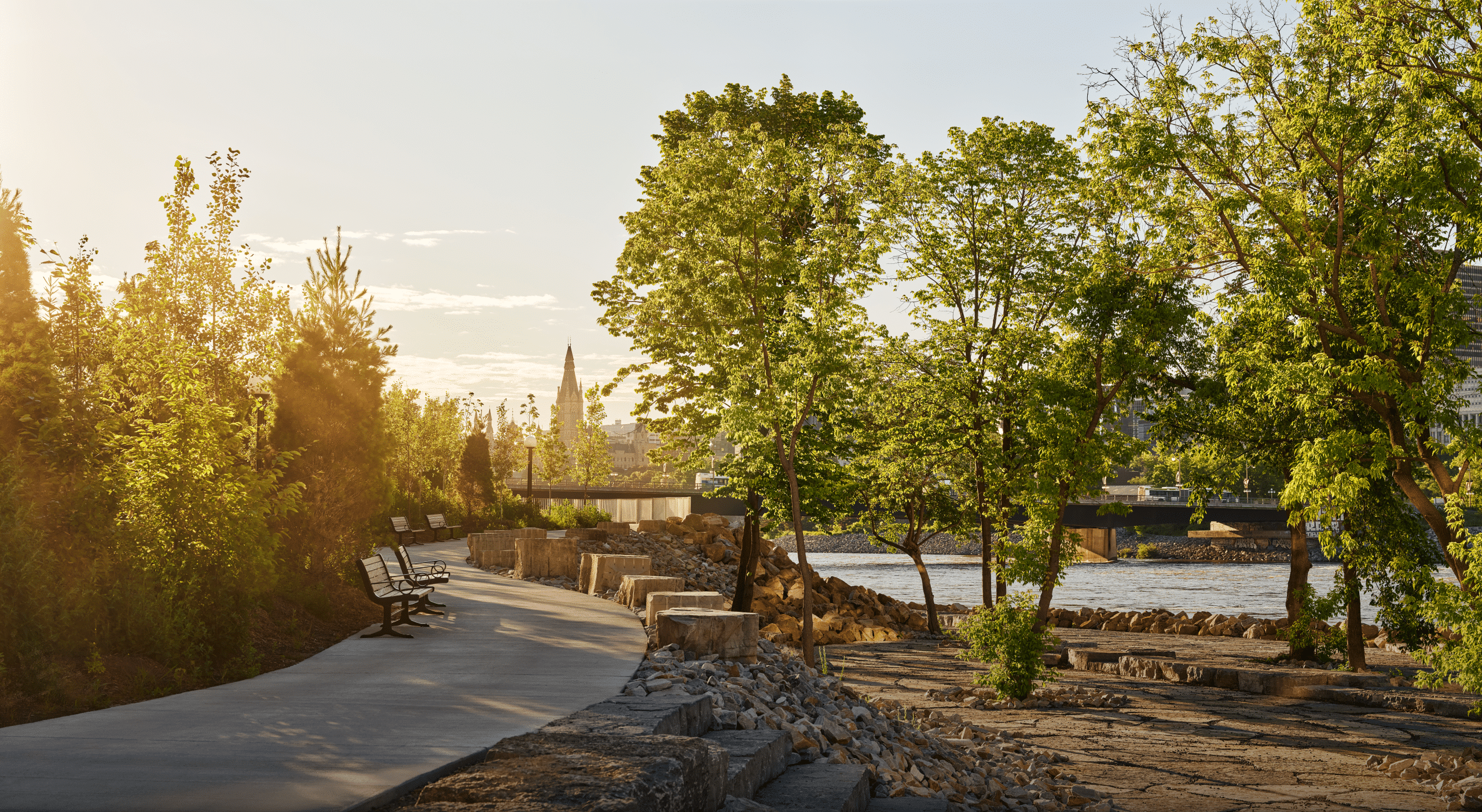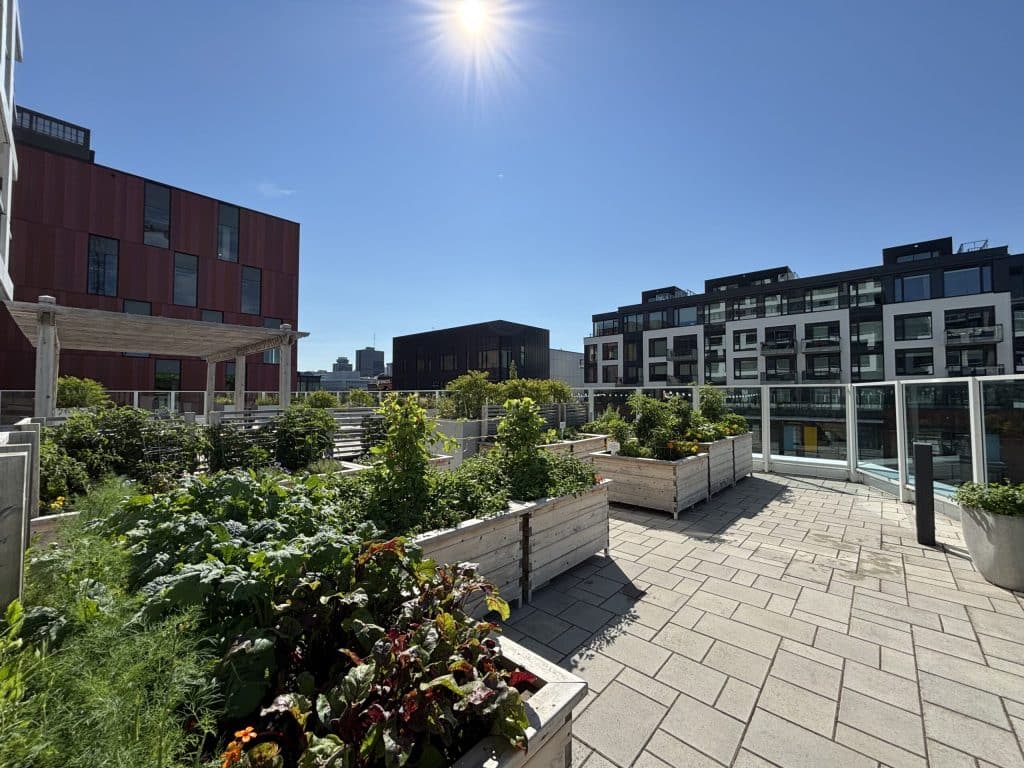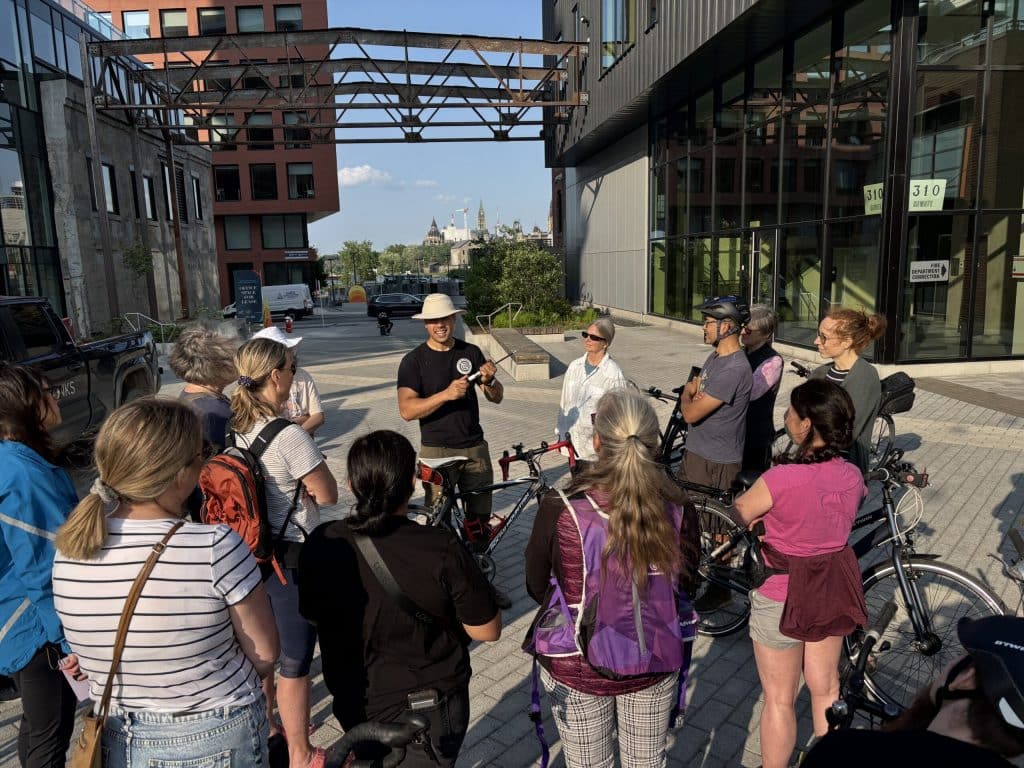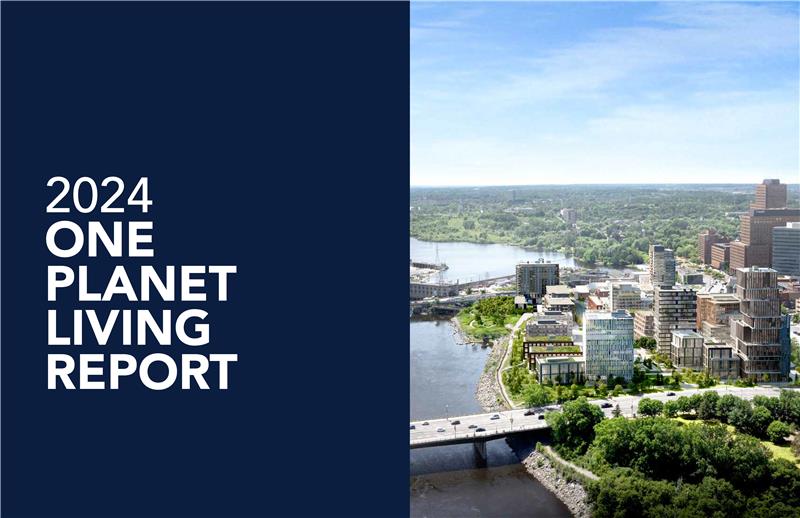GREENER LIVING
Two Provinces, One Planet. Zibi adheres to all 10 principles of the world-class One Planet Living framework developed by Bioregional and the World Wildlife Fund – from eliminating GHG emitting energy sources to encouraging social equity. The One Planet program is backed by decades of qualitative and quantitative research and to date only a handful of projects have met its standards, Zibi being the only recognized community in Canada endorsed by Bioregional demonstrating leadership in One Planet Living.
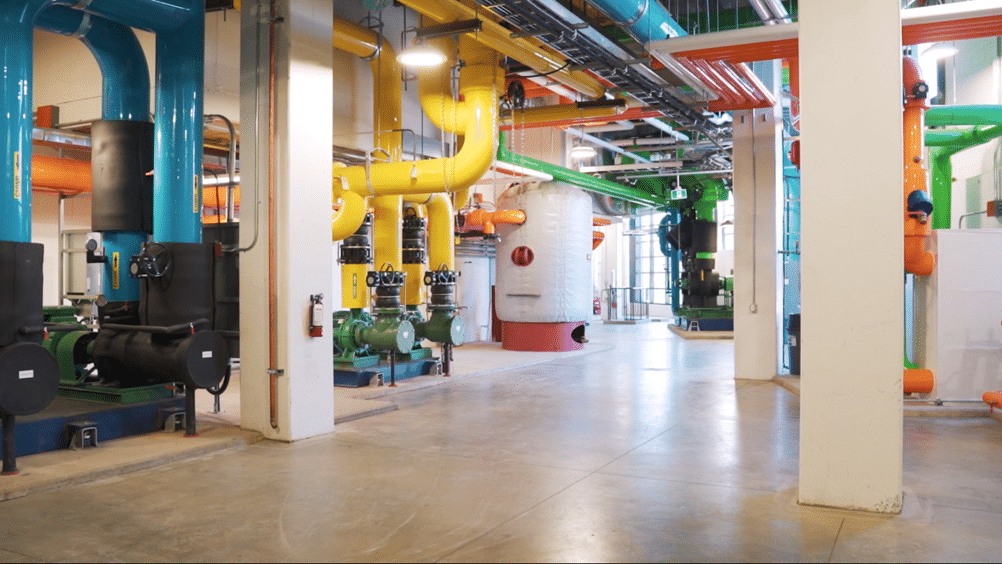
District Energy
Zibi has developed the region’s first zero-carbon district cooling and heating system by taking advantage of post-industrial waste heat, using clean electricity from Hydro Quebec, and drawing cooling from Ottawa River. This District Energy system lets buildings share heating and cooling with each other before needing extra energy, keeping the whole community comfortable without relying on high-carbon energy sources.
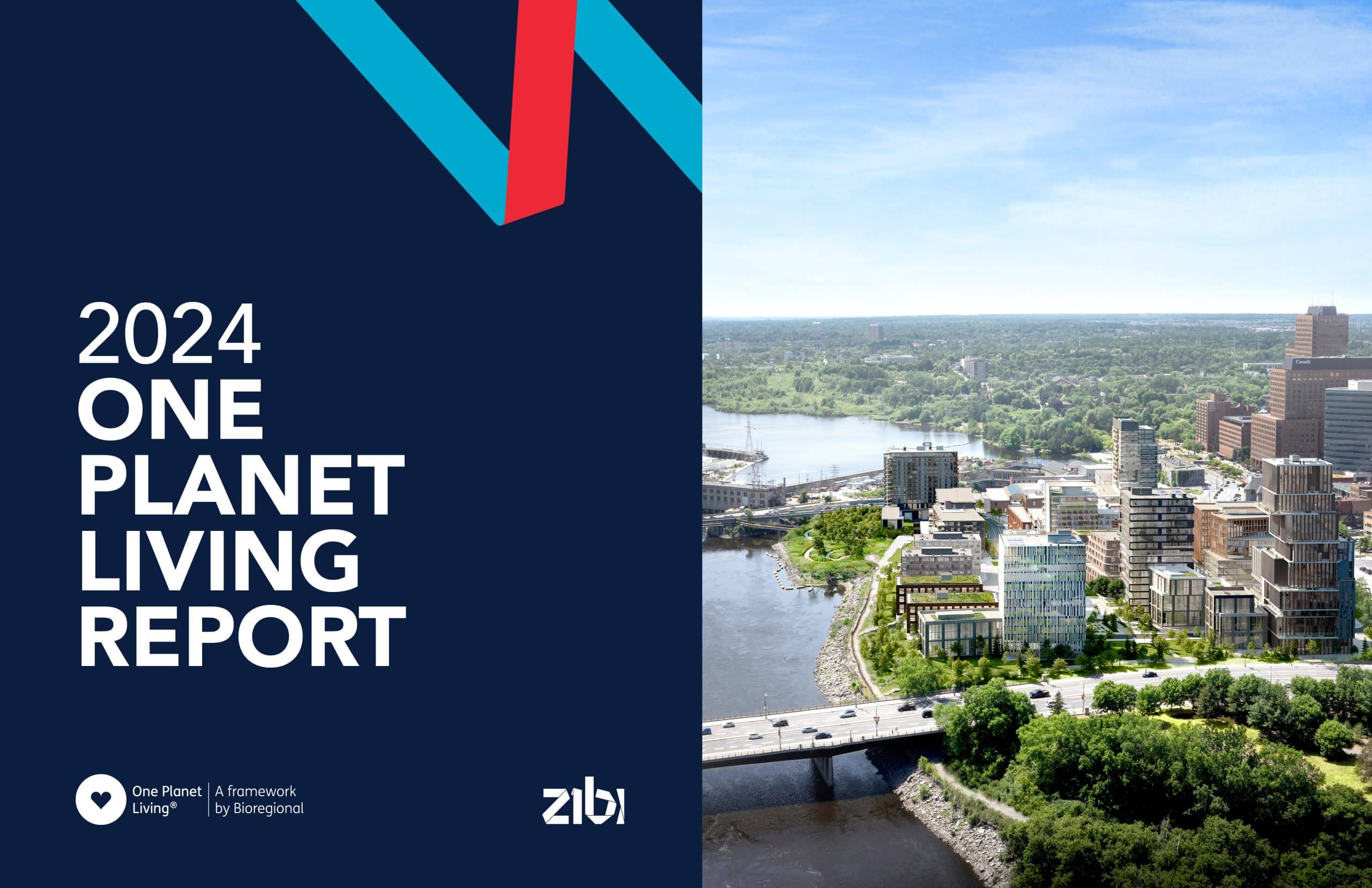
Annual Reports
These peer-reviewed annual reports help us reflect and ensure we stay on track to becoming Canada’s first One Planet Living community. Have a read to learn about our highlights of the year and areas we’ve identified for improvement.

